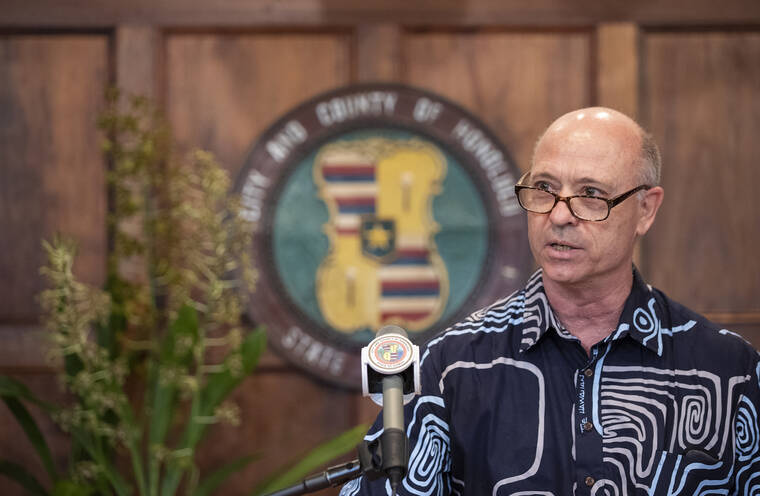In August of 2020, I was appointed to the Honolulu Police Commission for a term ending Dec. 31, 2021.
At the time, I fully intended to ask the next mayor to consider re-appointing me to a five-year term. Although police commission work is hard and complex, it is gratifying. There is a part of me that very much wants to continue serving, and that feels I owe that to the community.
But over time, my perspective about what the commission needs has changed. And so I recently told Mayor Rick Blangiardi that I will not ask him to reconsider appointing me. He asked the obvious question: why? Let me tell you what I told him.
I am a privileged, older, white male who views the world from a certain lens. At least from my perspective, the current commission, to different degrees, is made up of people who view the world from a similar lens.
The current commission has four attorneys (a former judge, a former attorney general, the current general counsel to a university, and a director of government relations for a large company). The other three hold, or held, senior executive positions in the private sector (a retired for-profit CEO, a retired communications executive, and a current hotel executive). Let me be clear. I respect each of the commissioners. They are deeply committed to serving the public. But none of us works closely with the marginalized communities that the police frequently interact with.
When I was a Family Court judge, disadvantaged people appeared before me every day. And as the CEO for 10 years at the YMCA of Honolulu, we had many programs to help the most marginalized in our community. But I have never had “boots on the ground,” working side by side, with our most disadvantaged. To my knowledge, neither have any of the other current police commissioners.
Moreover, the Pacific Islander and Native Hawaiian communities make up approximately 10% of the state’s population, and as much as 26%, if you include people who are multiracial. Yet, there is not one Pacific Islander, or Native Hawaiian, on the commission. Equally troubling, a disproportionate number of Pacific Islanders and Native Hawaiians are subjected to use of force and arrest, and are overrepresented in our criminal justice system.
And so I asked Mayor Blangiardi to consider replacing me with a Pacific Islander, or a Native Hawaiian, who works closely with those communities and populations that most frequently interact with the police. This will help give marginalized communities a real voice on the police commission, something I feel is desperately needed.
To put it simply, my perspective is well-represented on the commission, and so I want to make room at the table for a different, and equally important, perspective.
I have been good friends with Mayor Blangiardi for almost 20 years, and was a member of his five-person core transition team. He is a tremendous leader, and someone I deeply respect. And anybody who knows the mayor knows he is his own man. So I have no illusions that he will do what I ask. But he promised to at least consider it, and that’s all I can ask.
It is time for our institutions of power, including the Honolulu Police Commission, to better reflect the various perspectives of our diverse community. The result will be more informed, and more just, decisions. And that is why my last day on the Honolulu Police Commission will be Dec. 31. Because it’s the right thing to do.
Honolulu Police Commission member Michael Broderick is principal of Broderick Dispute Resolution and a retired Family Court judge.

